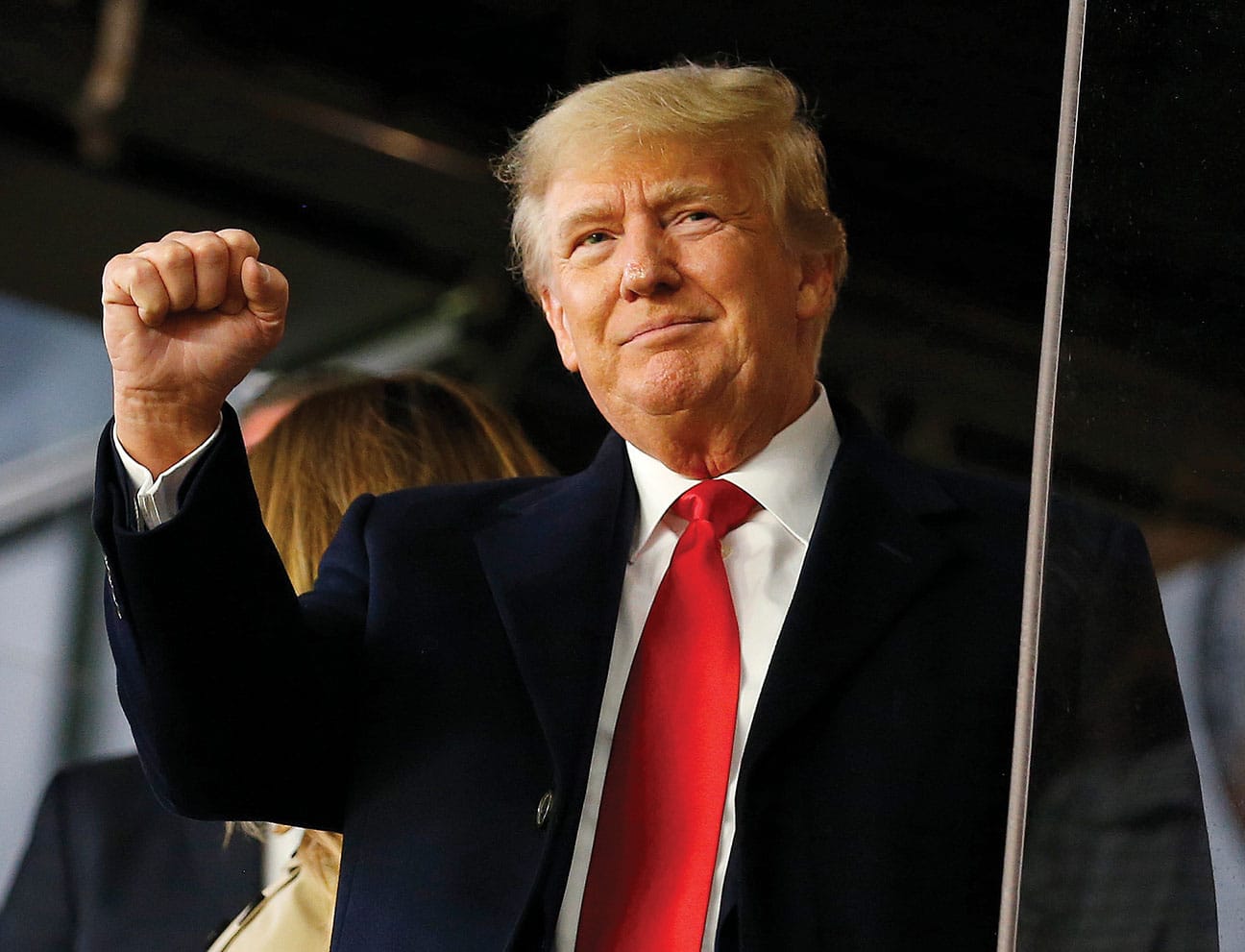 (Photo by Michael Zarrilli/Getty Images)
(Photo by Michael Zarrilli/Getty Images) Donald Trump officially kicked off the 2024 presidential campaign last Tuesday night, only a week after voting in the 2022 midterm elections had concluded. But the GOP primary race kicked into a higher gear over the weekend, when a dozen presidential hopefuls spoke to the meeting of the Republican Jewish Committee (RJC) in Las Vegas. While we are more than a year from the first primary votes being cast, the RJC meeting provided an early glimpse into what could be the most competitive battle for the party’s nomination in years.
Some of you may regard this gathering of the potential Republican field as an important early sign into how the primary campaign might progress. Others may view it as being nothing more than an anthropological study of a strange and unfamiliar alien culture. But as we learned in 2016, any field that includes Donald Trump is worthy of our attention, regardless of how you may feel about his candidacy.
The most important takeaway from the RJC gathering was the greatly diminished status of the former president before a roomful of his party’s activists, donors and influencers. Trump was the only speaker not to join in person and his speech to the group by satellite was shoehorned into a crowded Saturday morning program in which several other potential candidates were quickly shuffled on and off the stage. By contrast, his former vice president Mike Pence keynoted the Friday night program while likely nemesis Gov. Ron DeSantis and former United Nations ambassador Nikki Haley received top billing on Saturday night.
The scheduling decision was based on Trump’s satellite participation and his last-minute decision to speak. But it also signified an important shift in the party’s thinking toward Trump after a midterm election in which many Republicans saw his involvement as a major reason for the GOP’s worse-than-expected showing. There’s no way of knowing whether party regulars share their leaders’ unhappiness with Trump, but it’s clear that the field of potential candidates was not intimidated in the slightest by their former standard-bearer and felt much more comfortable than ever before to publicly criticize him.
Some speakers were vocal – and even harsh – in their disparagement, most notably New Hampshire Gov. Chris Sununu and former New Jersey Gov. Chris Christie of New Jersey, and Trump’s own former Secretary of State, Mike Pompeo. But most ignored him altogether. DeSantis did not respond to any of Trump’s recent insults, acting very much the part of the frontrunner. Others talked in vague terms about the future versus the past. Haley’s positioning was especially noticeable: while she had previously stated publicly that she would not run if Trump were a candidate, the former U.N. Ambassador did not let his announcement get in the way of several broad hints that she was now likely to enter the race.
Trump is still the most powerful figure in the Republican Party. It will be months before DeSantis will have the opportunity to prove whether he has displaced Trump in that role.
Trump is still the most powerful figure in the Republican Party. It will be months before DeSantis will have the opportunity to prove whether he has displaced Trump in that role. But the Florida governor received by far the most enthusiastic response from the attendees (South Carolina Sen. Tim Scott, the GOP’s only Black member of that body, also made a noticeable impact, as did Pence and Haley.) Trump, by contrast, was not able to feed off the audience’s energy via remote, and presented a subdued address very similar to his official announcement earlier in the week.
From his denunciation of John McCain back in 2015 and the Access Hollywood controversy in the weeks before his election, to the January 6 riots and the FBI’s Mar-a-Lago investigation, I have written off Trump far too many times over the years to do so again. But it is instructive that so many prominent members of his party, who have either held their tongues or made excuses for Trump in the past in order to avoid his wrath, are now so willing to speak out against him in increasingly vituperative terms. This doesn’t guarantee Trump’s defeat, but it does suggest that the RJC meeting last weekend may have been the opening skirmish of a long and protected intra-party war.
Dan Schnur is a Professor at the University of California – Berkeley, USC and Pepperdine. Join Dan for his weekly webinar “Politics in the Time of Coronavirus” (www.lawac.org) on Tuesdays at 5 PM.





















 More news and opinions than at a Shabbat dinner, right in your inbox.
More news and opinions than at a Shabbat dinner, right in your inbox.